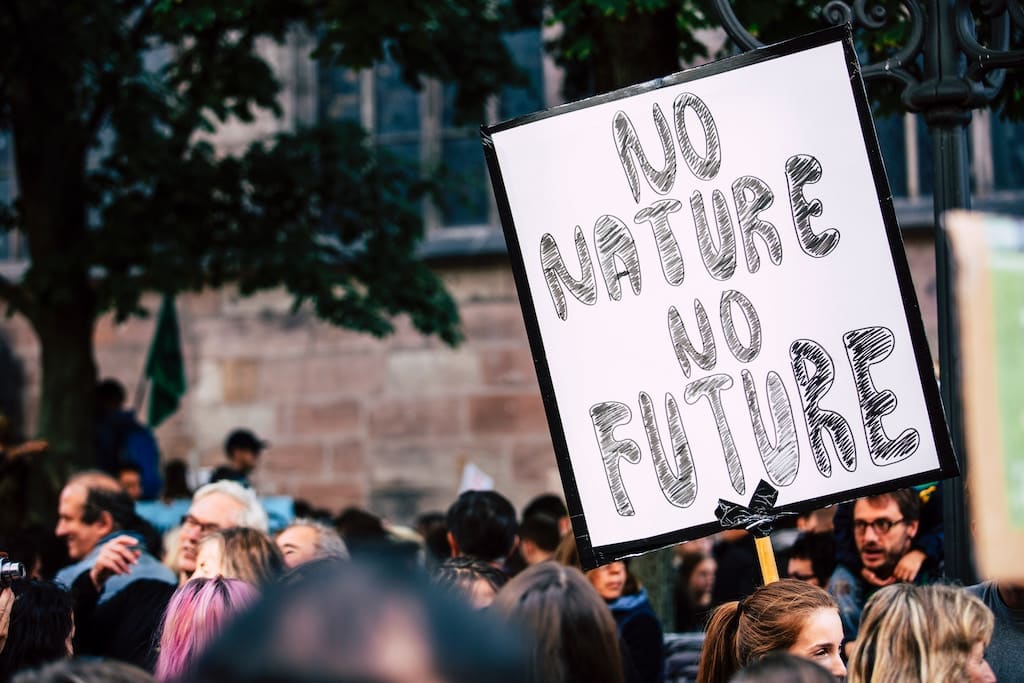
Climate strikes around the world have highlighted many young people’s passion for protecting the environment. As the 2020 presidential election heats up, college students overwhelmingly support stricter environmental regulations, and the majority want a presidential candidate who prioritizes addressing climate change.
A new survey of 1,500 undergraduates finds that more than 8 in 10 (82%) say stricter environmental laws and regulations are worth the cost. But Republican students are more torn than Democratic students. More than 4 in 10 (43%) Republicans say stricter environmental laws and regulations are worth it, compared to more than 9 in 10 (97%) Democrats. By contrast, more than half (56%) of Republicans say stricter laws and regulations cost too many jobs and hurt the economy.
There’s widespread support among students for expanding public transportation (90%); requiring companies to pay a carbon tax when they burn coal, oil, or gas (83%); and banning fracking (73%).
However, students are just as divided on proposals to ban the building of new nuclear power plants as the Democratic presidential hopefuls. Almost half (47%) of students favor banning the building of new nuclear power plants, while 52% oppose the idea.
Students with different political leanings have widely divergent views about environmental policies, but largely agree that the U.S. should expand public transportation (96% of Democrats vs. 79% of Republicans). The widest gap involves fracking, and Democrats are more than twice as likely as Republicans to support banning the process to extract oil or gas (91% vs. 34%).
A Majority of Democrats and Republicans Support Expanding Public Transportation
Percent of students who favor…
A majority of students say they would be less likely to vote for a political candidate who denied that climate change was caused by human activity (75%), as well as a candidate who did not make addressing climate change a top priority (62%). Republicans are far more likely than Democrats to say it would not make any difference whether a candidate denied that climate change was caused by human activity (55% vs. 3%) or did not prioritize the climate (57% vs. 13%).
At the same time, female students are more likely than male students to say they would be less likely to vote for someone who denied humans’ impact on the climate (80% vs. 67%) or someone who did not prioritize addressing global warming (72% vs. 48%).
Female Students are More Likely to Prioritize Climate Change When Voting
Would you be more likely or less likely to vote for a political candidate who did not make addressing climate change a top priority?
To receive regular updates about this study, as well as other key college student insights, sign up here.
__________________________
Methodology: This survey was designed and conducted by College Pulse. Interviews were conducted among a sample of 1,500 full-time and part-time students attending four-year colleges or universities in the U.S. who are part of College Pulse’s American College Student Panel.




